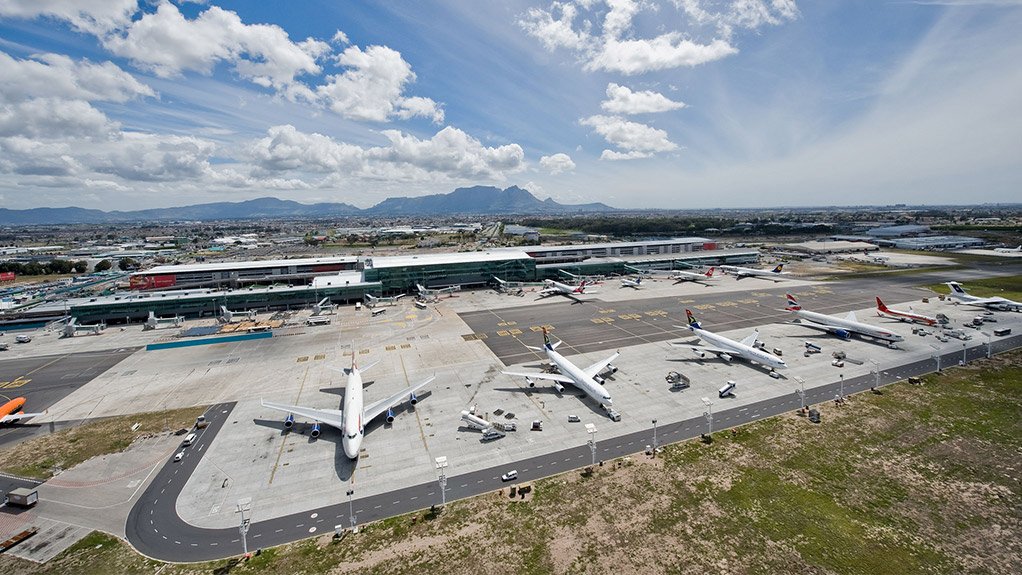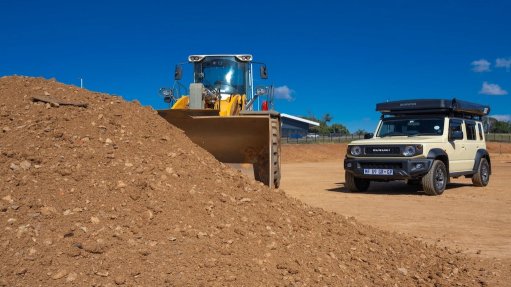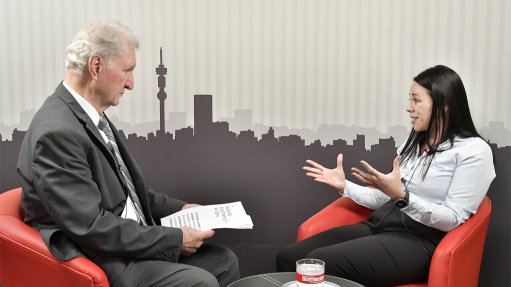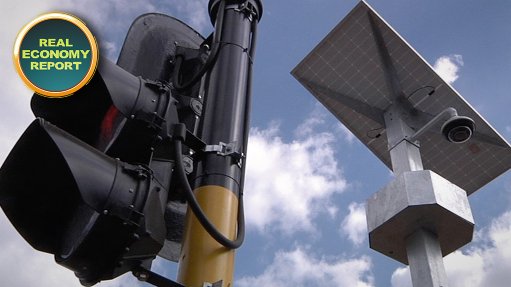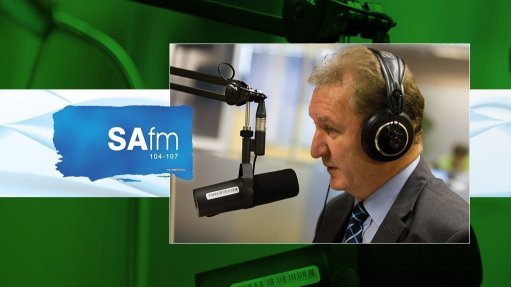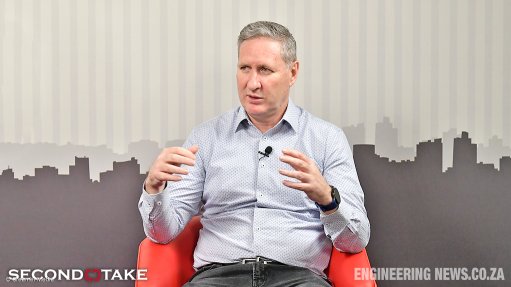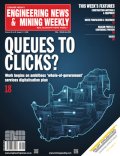ACSA narrows loss to R142m, expects profitability by next year
State-owned Airports Company South Africa (ACSA) has reported an improvement in earnings before interest, taxes, depreciation and amortisation to R2-billion for the financial year ended March 31.
This compares with Ebitda of R342-million posted for the prior financial year, which reflects a steady recovery and significant improvement on performance in the reporting year.
Revenue of R6-billion was up by 55% year-on-year, compared with revenue of R3.9-billion reported for the prior financial year.
The group continues to tightly control operating expenditure in what is a high operating cost environment. Operating expenditure increased by 10% year-on-year to R3.5-billion in the year under review.
ACSA’s profitability was impacted by high credit losses on trade receivables and fair value losses on investment properties, resulting in an after-tax loss of R142-million, which is a significant improvement on the R1-billion loss posted in the prior year.
“The results reflect the group’s steady trajectory towards recovery and a move closer to profitability, following the turbulent trading conditions brought on by the Covid-19 pandemic,” says ACSA CEO Mpumi Mpofu.
She expects ACSA to return to profitability by next year, owing to ACSA’s Recover and Sustain Strategy having been implemented, as well as the implementation of a revised financial plan.
Mpofu says that, to ensure this profitability, ACSA is focusing on operational efficiency, full use of its R30-billion asset base, diversified revenue streams and growing the business through new commercial initiatives.
She adds that the 76% recovery in the year under review, compared with 2019 levels, as well as ACSA’s performance on aeronautical and non-aeronautical revenue, will ensure that it achieves marginal profits next year.
However, there are some factors that could influence further recovery, including economic and geopolitical aspects beyond ACSA’s control. The group will continue to monitor these closely and prioritise factors that it can control, such as working with airlines and the Department of Transport for route development.
“In partnership with the airlines, we have to ensure the conditions are favourable for airlines to want to travel through our airports. So that is the one thing we can certainly control,” Mpofu comments.
ACSA’s operating expenditure increased by 10% in the year under review to R2.2-billion, compared with R2-billion in the prior year, mostly owing to increases in the cost of maintenance and information systems – which reflects the full reopening of airports and supporting services.
Utility costs such as electricity, in particular, also drove up operational expenditure.
Capital expenditure (capex) was limited to airport maintenance and resilience during the reporting year, with most uncontracted and capacity-related projects remaining on hold until funding is secured.
A total of R422-million was spent on those projects in the year under review, compared with R546-million spent on capex in the prior year.
Mpofu notes that as part of the ACSA recovery, all facilities that were mothballed during Covid-19 have been brought back online, not only owing to increased volumes, but also to maintain ACSA’s status as a world class airport management company.
REVENUE SOURCES
In the year under review, aeronautical revenue improved significantly by 64% year-on-year to R3-billion, owing to a 20% increase in aircraft movements to 211 787 and a 50% increase in the number of departing passengers to 15.8-million.
The implementation of the 3.1% tariff increase approved by the regulator also contributed to the increase in revenue.
Non-aeronautical revenue followed a similar trend, increasing by 46% year-on-year to R3.1-billion, reflecting a significant improvement in trading conditions during the year.
The bulk of this income, or R982-million, was derived from property rentals, the balance, or R848-million, from retail activities.
Mpofu notes that ACSA has been looking to maintain an ideal 50:50 split between aeronautical and non-aeronautical revenue but says the constraints on the two revenue streams are largely interdependent because non-aeronautical revenue is driven by aeronautical activity.
“The noticeable trend is that non-aeronautical revenue grows along with recovery in passenger volumes and passenger movements. Having said that, we do have a diverse portfolio of properties, which is another stream of revenue, but it was also hit hard by the pandemic due to the advent of hybrid and work-from-home strategies,” she explains.
Mpofu adds that, going forward, ACSA will efficiently manage its investment property portfolio, but to divorce non-aeronautical revenue completely from aeronautical revenue is impossible, because this portfolio contains retail properties which is highly dependent on the footprint of passengers at the airports.
Meanwhile, ACSA has consistently won several awards for being one of the best airport management companies in Africa, which is a position it wants to maintain.
“In 30 years ACSA has transformed small airport terminal buildings to world class airport facilities through solid financial footing and a balance sheet that allowed for investors to trust us with their monies.
“We are among the best-run airports companies on the African continent and State-owned entities in South Africa and we have worked out a path to ensure a predictable growth and profitability trajectory,” Mpofu concludes.
Comments
Announcements
What's On
Subscribe to improve your user experience...
Option 1 (equivalent of R125 a month):
Receive a weekly copy of Creamer Media's Engineering News & Mining Weekly magazine
(print copy for those in South Africa and e-magazine for those outside of South Africa)
Receive daily email newsletters
Access to full search results
Access archive of magazine back copies
Access to Projects in Progress
Access to ONE Research Report of your choice in PDF format
Option 2 (equivalent of R375 a month):
All benefits from Option 1
PLUS
Access to Creamer Media's Research Channel Africa for ALL Research Reports, in PDF format, on various industrial and mining sectors
including Electricity; Water; Energy Transition; Hydrogen; Roads, Rail and Ports; Coal; Gold; Platinum; Battery Metals; etc.
Already a subscriber?
Forgotten your password?
Receive weekly copy of Creamer Media's Engineering News & Mining Weekly magazine (print copy for those in South Africa and e-magazine for those outside of South Africa)
➕
Recieve daily email newsletters
➕
Access to full search results
➕
Access archive of magazine back copies
➕
Access to Projects in Progress
➕
Access to ONE Research Report of your choice in PDF format
RESEARCH CHANNEL AFRICA
R4500 (equivalent of R375 a month)
SUBSCRIBEAll benefits from Option 1
➕
Access to Creamer Media's Research Channel Africa for ALL Research Reports on various industrial and mining sectors, in PDF format, including on:
Electricity
➕
Water
➕
Energy Transition
➕
Hydrogen
➕
Roads, Rail and Ports
➕
Coal
➕
Gold
➕
Platinum
➕
Battery Metals
➕
etc.
Receive all benefits from Option 1 or Option 2 delivered to numerous people at your company
➕
Multiple User names and Passwords for simultaneous log-ins
➕
Intranet integration access to all in your organisation



